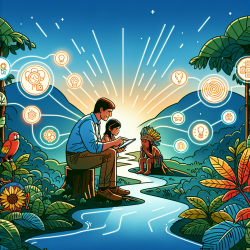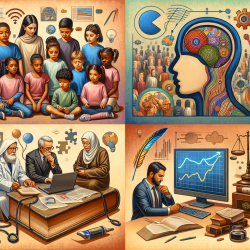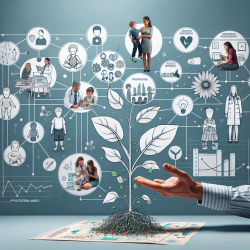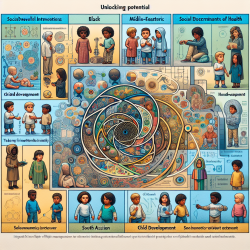The lush landscapes of the Amazon are home to diverse communities facing unique challenges. Among these is the prevalence of developmental delays in children, as highlighted by the research titled "Developmental delay in the Amazon: The social determinants and prevalence among rural communities in Peru." This study sheds light on critical factors affecting child development and offers insights that practitioners can use to enhance their skills and make a difference.
The Study's Findings: A Closer Look
The research conducted in the Amazonian regions of Loreto and Ucayali revealed a significant prevalence of developmental delays among children under four years old. Utilizing the Ages and Stages Questionnaire (ASQ-3), the study found that 26.7% of children exhibited developmental delays, with communication and gross motor skills being notably affected.
Several social determinants were identified as contributing factors, including:
- Mother's Education Level: A higher level of maternal education was associated with a lower risk of developmental delays.
- Age of Mother at Childbirth: Younger maternal age correlated with increased developmental risks.
- Community Health Agent Visits: Regular visits from health agents were linked to better developmental outcomes.
- Access to Clean Water: Reliance on river water significantly increased the likelihood of developmental issues.
Implementing Change: Strategies for Practitioners
The findings underscore the importance of addressing these social determinants to foster better developmental outcomes. Practitioners can enhance their impact by focusing on several key strategies:
- Promoting Maternal Education: Encourage educational programs for mothers to equip them with knowledge that supports child development.
- Youth Pregnancy Prevention: Implement community programs aimed at reducing adolescent pregnancies through education and support services.
- Enhancing Community Health Services: Advocate for increased visits by community health agents who can provide essential health education and support directly to families.
- Sustainable Water Solutions: Work with local governments and NGOs to improve access to clean drinking water, reducing reliance on unsafe sources like rivers.
The Role of Online Therapy Services
TinyEYE's online therapy services can play a crucial role in supporting these efforts. By providing remote access to speech-language pathologists and other specialists, we can help bridge gaps in care for children with developmental delays. Our services enable practitioners to deliver personalized interventions that address specific needs identified through assessments like the ASQ-3.
A Call for Further Research
The study highlights significant associations between social determinants and developmental delays, yet further research is needed to explore these relationships deeply. Practitioners are encouraged to engage in ongoing research efforts to refine intervention strategies and expand understanding of cultural and regional factors impacting child development.
This research provides a foundation for meaningful change, but continued collaboration and innovation are essential to creating sustainable improvements in child development across the Amazon region.










